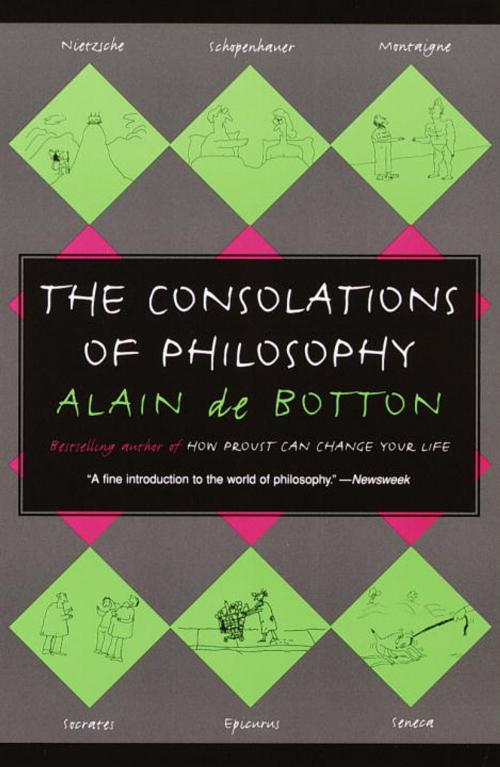The Consolations of Philosophy
Nonfiction, Religion & Spirituality, Philosophy, Humanism, History, Criticism, & Surveys, New Age, Personal Transformation| Author: | Alain De Botton | ISBN: | 9780307833501 |
| Publisher: | Knopf Doubleday Publishing Group | Publication: | January 23, 2013 |
| Imprint: | Vintage | Language: | English |
| Author: | Alain De Botton |
| ISBN: | 9780307833501 |
| Publisher: | Knopf Doubleday Publishing Group |
| Publication: | January 23, 2013 |
| Imprint: | Vintage |
| Language: | English |
From the author of How Proust Can Change Your Life, a delightful, truly consoling work that proves that philosophy can be a supreme source of help for our most painful everyday problems.
Perhaps only Alain de Botton could uncover practical wisdom in the writings of some of the greatest thinkers of all time. But uncover he does, and the result is an unexpected book of both solace and humor. Dividing his work into six sections -- each highlighting a different psychic ailment and the appropriate philosopher -- de Botton offers consolation for unpopularity from Socrates, for not having enough money from Epicurus, for frustration from Seneca, for inadequacy from Montaigne, and for a broken heart from Schopenhauer (the darkest of thinkers and yet, paradoxically, the most cheering). Consolation for envy -- and, of course, the final word on consolation -- comes from Nietzsche: "Not everything which makes us feel better is good for us."
This wonderfully engaging book will, however, make us feel better in a good way, with equal measures of wit and wisdom.
From the author of How Proust Can Change Your Life, a delightful, truly consoling work that proves that philosophy can be a supreme source of help for our most painful everyday problems.
Perhaps only Alain de Botton could uncover practical wisdom in the writings of some of the greatest thinkers of all time. But uncover he does, and the result is an unexpected book of both solace and humor. Dividing his work into six sections -- each highlighting a different psychic ailment and the appropriate philosopher -- de Botton offers consolation for unpopularity from Socrates, for not having enough money from Epicurus, for frustration from Seneca, for inadequacy from Montaigne, and for a broken heart from Schopenhauer (the darkest of thinkers and yet, paradoxically, the most cheering). Consolation for envy -- and, of course, the final word on consolation -- comes from Nietzsche: "Not everything which makes us feel better is good for us."
This wonderfully engaging book will, however, make us feel better in a good way, with equal measures of wit and wisdom.















